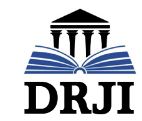ASSESSMENT MODELS IN DEEP LEARNING AT SCHOOL
Abstract
Deep learning in elementary schools emphasizes students’ active engagement in constructing meaningful understanding through critical thinking, problem-solving, collaboration, and reflection. To achieve these goals, an assessment model capable of evaluating both the learning process and outcomes authentically and comprehensively is required. This conceptual article aims to analyze various assessment models relevant to supporting deep learning in elementary schools, including formative assessment, authentic assessment, project-based assessment, portfolio, and performance rubrics. This study employs a qualitative approach using a literature review (conceptual study) method. Data were collected from scholarly articles, research findings, and policy documents related to the Merdeka Curriculum and 21st- century learning assessment. The data were analyzed qualitatively and descriptively through processes of reduction, categorization, and synthesis to identify patterns in the application of assessment models within the context of deep learning in elementary schools. The findings reveal that integrating multiple assessment models plays a crucial role in realizing deep learning. Formative assessment helps teachers monitor students’ learning progress and provide continuous feedback; authentic and project-based assessments encourage the application of knowledge in real-life contexts; portfolios support self- reflection and track competency development; and performance rubrics ensure objectivity and transparency in evaluation. The integration of these five assessment models strengthens students’ learning motivation, higher-order thinking skills, creativity, collaboration, and reflection. This study concludes that assessment should not merely serve as a tool for measuring learning outcomes but should function as an integral part of the learning process, acting as assessment as learning. Therefore, elementary school teachers need to design assessments aligned with the principles of the Merdeka Curriculum, as the integration of deep learning and authentic assessment is key to developing reflective, creative, and competitive learners who meet the demands of 21st-century education.
Keywords
Full Text:
PDFReferences
Andriani, R., Sari, D., & Nugraha, H. (2024). Penggunaan rubrik berbasis SDGs dalam asesmen portofolio siswa sekolah dasar. Jurnal Evaluasi Pendidikan, 12(1), 45–58.
Black, P., & Wiliam, D. (2018). Inside the black box: Raising standards through classroom assessment. Phi Delta Kappan, 92(1), 81–90.
Creswell, J. W., & Creswell, J. D. (2018). Research design: Qualitative, quantitative, and mixed methods approaches (5th ed.). SAGE Publications.
Earl, L. M. (2013). Assessment as learning: Using classroom assessment to maximize student learning. Corwin Press.
Febriyanti, N., & Wardana, I. (2023). Implementasi asesmen formatif berbasis diagnostik dalam pembelajaran sekolah dasar. Jurnal Pendidikan Dasar Nusantara, 8(2), 112–124.
Fitriyah, S., Anjani, D., & Kurnia, R. (2022). Penerapan asesmen autentik berbasis proyek dalam Kurikulum Merdeka di sekolah dasar. Jurnal Inovasi Pembelajaran, 10(1), 67–79.
Hidayat, A. (2021). Refleksi dalam asesmen formatif untuk meningkatkan keterlibatan siswa SD. Jurnal Pendidikan Dasar Indonesia, 6(2), 99–108.
Lestari, M., & Wulandari, E. (2022). Pengaruh rubrik analitik terhadap keterampilan reflektif siswa sekolah dasar dalam asesmen proyek. Jurnal Penelitian Pendidikan Dasar, 7(3), 203–215.
Marton, F., & Säljö, R. (1997). Approaches to learning. In F. Marton, D. Hounsell, & N. Entwistle (Eds.), The experience of learning (2nd ed., pp. 39–58). Scottish Academic Press.
Nurhayati, D., & Ramadhan, F. (2021). Pemanfaatan portofolio digital untuk mendukung pembelajaran Kurikulum Merdeka di sekolah dasar. Jurnal Teknologi Pendidikan Dasar, 5(2), 88–100.
Pratiwi, E., & Suryana, D. (2022). Analisis implementasi asesmen tradisional dan dampaknya terhadap pembelajaran berpikir tingkat tinggi di SD. Jurnal Evaluasi Pendidikan, 9(2), 55–68.
Puspitasari, I., & Handayani, A. (2021). Project-based assessment dalam Kurikulum Merdeka untuk meningkatkan keterampilan berpikir kritis siswa SD. Jurnal Pendidikan Inovatif, 5(1), 25–37.
Rahmawati, N. (2020). Asesmen formatif berbasis portofolio dalam meningkatkan refleksi belajar siswa sekolah dasar. Jurnal Penilaian Pendidikan, 14(1), 45–57.
Siregar, Y., & Lestari, N. (2021). Pengaruh asesmen berbasis proyek terhadap tanggung jawab dan kemampuan reflektif siswa SD. Jurnal Ilmiah Pendidikan Dasar, 6(4), 187–198.
Suryani, L., & Nugroho, A. (2022). Asesmen formatif dan peningkatan kepercayaan diri siswa sekolah dasar. Jurnal Pendidikan Dasar Berkelanjutan, 8(3), 142–154.
Trilling, B., & Fadel, C. (2009). 21st century skills: Learning for life in our times. Jossey-Bass.
Widiastuti, N. (2021). Implementasi asesmen autentik berbasis proyek dalam meningkatkan kreativitas siswa sekolah dasar. Jurnal Pendidikan Karakter dan Inovasi, 4(1), 33–45.
Wiggins, G. (1998). Educative assessment: Designing assessments to inform and improve student performance. Jossey-Bass.
Widiana, I. (2022). Penerapan project-based assessment untuk meningkatkan keterampilan berpikir kritis siswa SD. Jurnal Pendidikan Dasar Kreatif, 7(2), 115–129.
DOI: https://doi.org/10.46576/ijsseh.v6i3.7920
Article Metrics
Abstract view : 45 timesPDF – 23 times
Refbacks
- There are currently no refbacks.
Copyright (c) 2025 paltiman lumban

This work is licensed under a Creative Commons Attribution-NonCommercial-ShareAlike 4.0 International License.
Dharmawangsa International Journal Indexed by:
Member Of :
Dharmawangsa: International Journal of the Social Sciences, Education and Humanitis Published By:
UNIVERSITAS DHARMAWANGSA
Alamat : Jl. K. L. Yos Sudarso No. 224 Medan
Kontak : Tel. 061 6635682 - 6613783 Fax. 061 6615190
Email : dharmawangsajournal@dharmawangsa.ac.id
Dharmawangsa:International Journal of the Social Sciences, Education and Humanitis by Universitas Dharmawangsa Medan is licensed under a Creative Commons Attribution-NonCommercial-ShareAlike 4.0 International License.
Based on a work at: https://jurnal.dharmawangsa.ac.id/index.php/dharmawangsa/index

11.jpg)
















